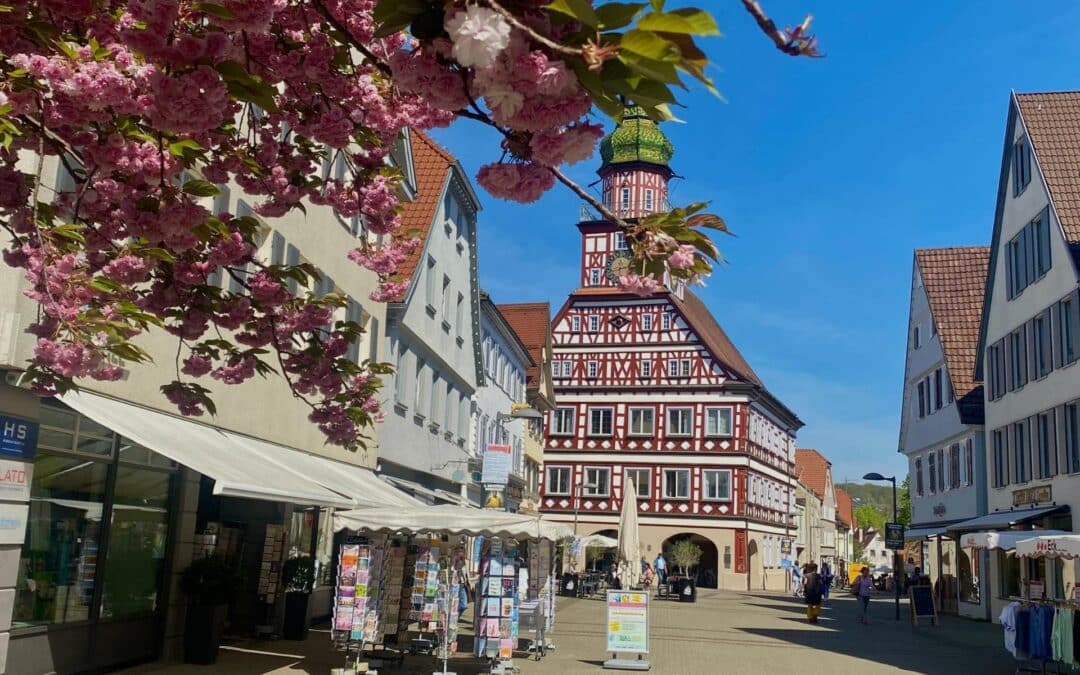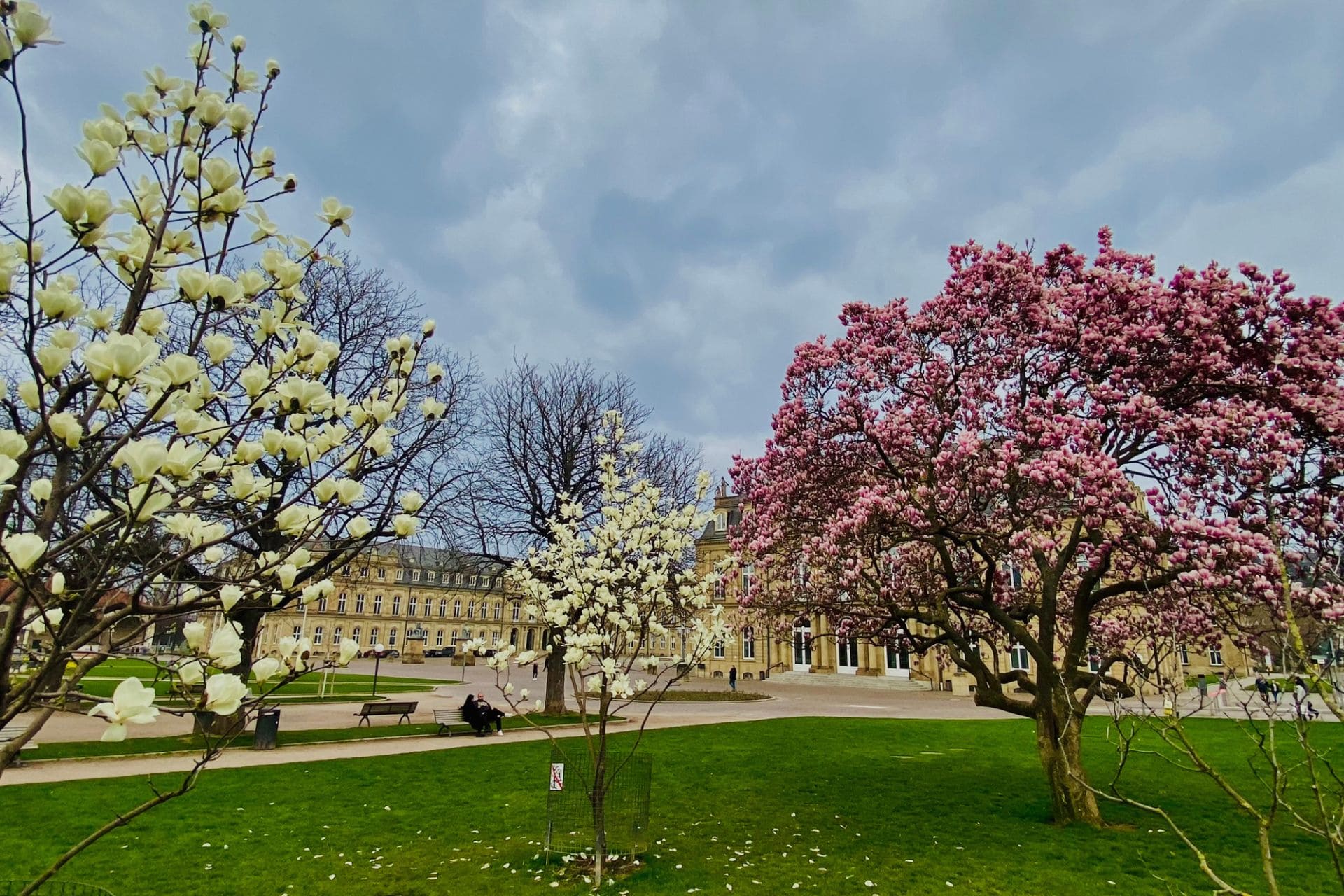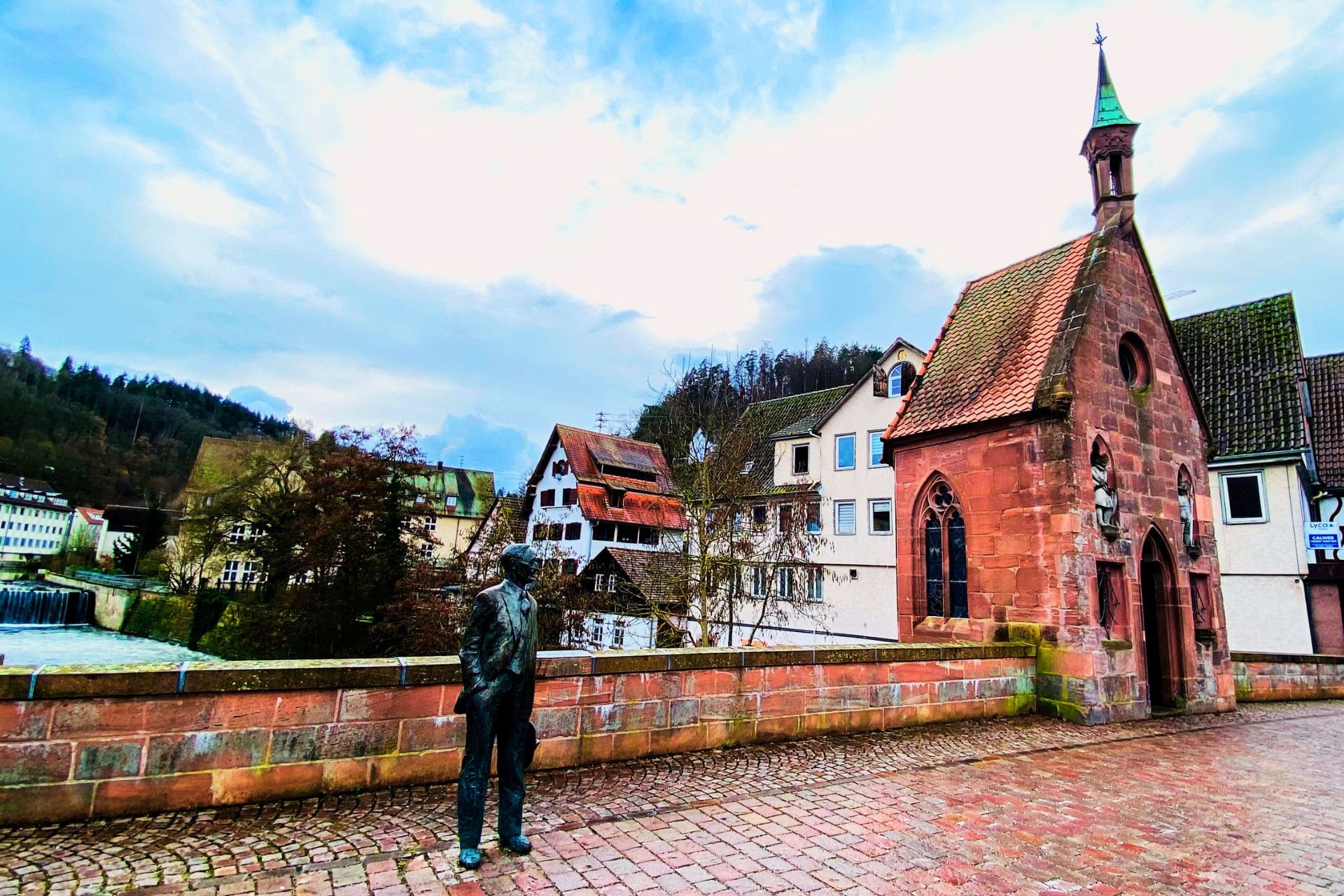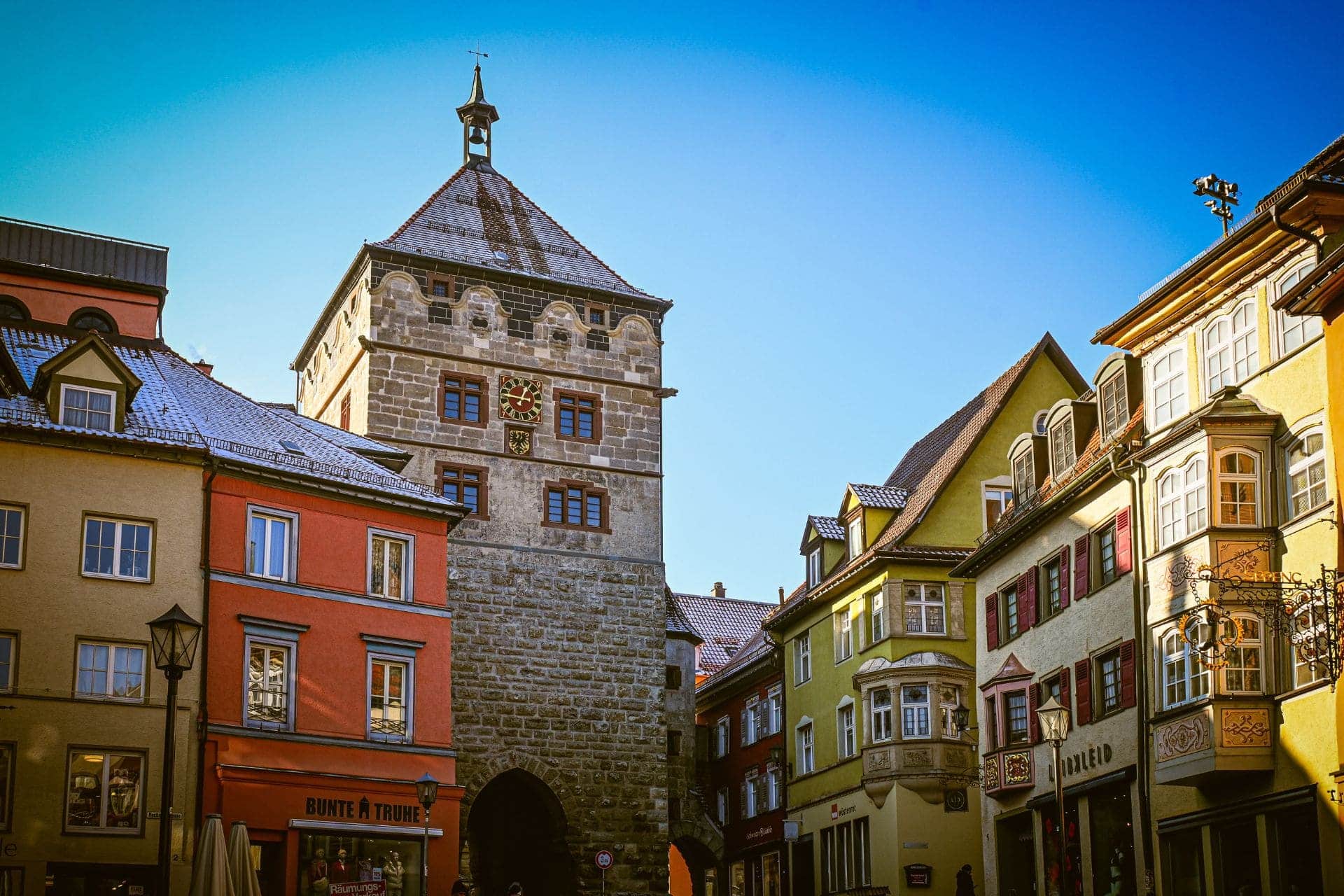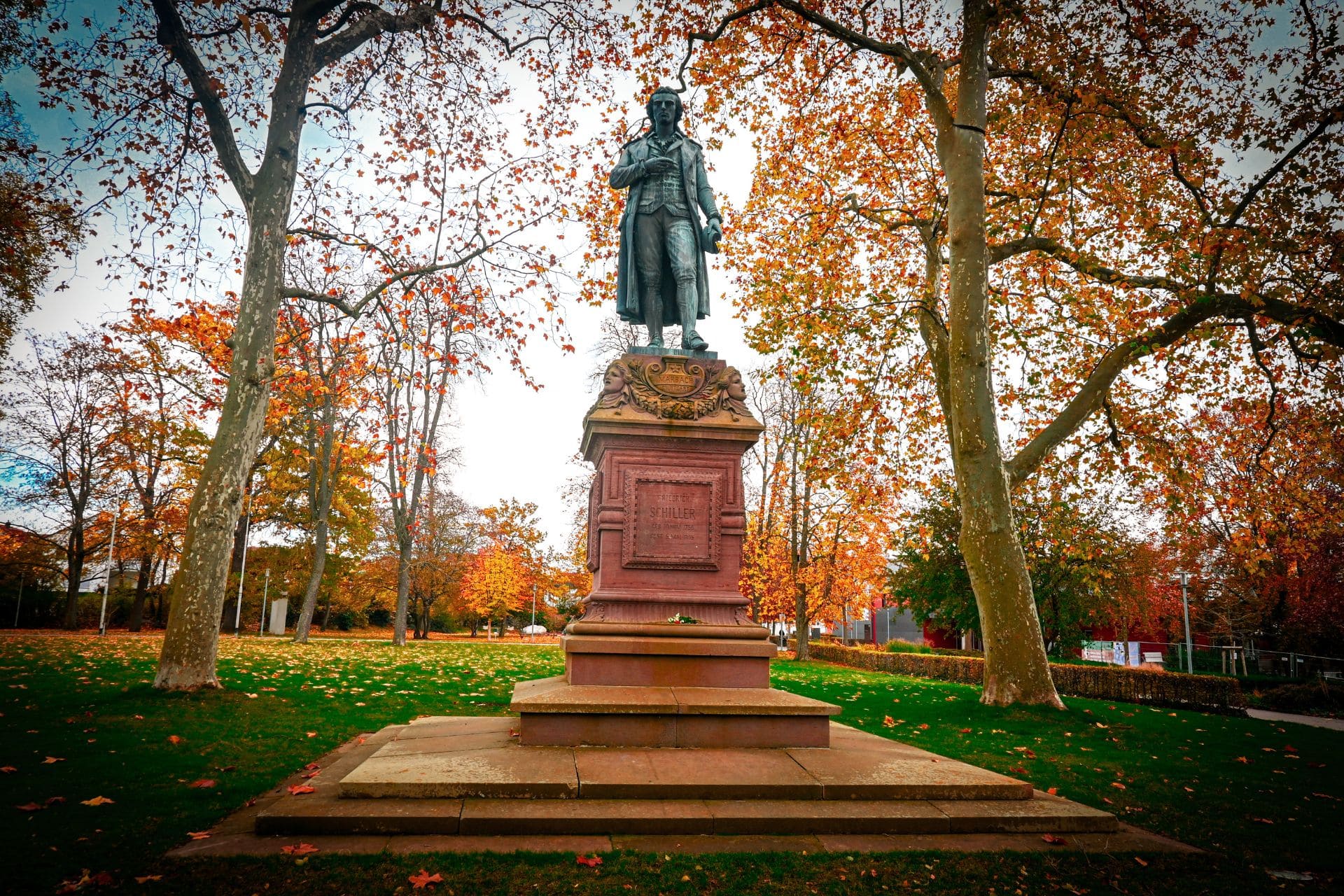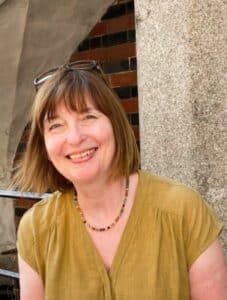Updated on April 13, 2024 by Angelika
For today's 12 of 12, I decided to use my €49 ticket and take the S-Bahn to Kirchheim unter Teck. For me, the journey takes just over an hour, from Suttgart main station it would be about 45 minutes on the S1 to Kirchheim. I can park my car in the parking garage of the P+R parking lot Goldberg, Böblingen, for €1.50 per day. That's a real bargain, I think - and my insider tip for all those flying on vacation from Stuttgart Airport, for example: You can park your car in this parking garage for up to 24 days for €1.50 per day and then take the S-Bahn to the airport in comfort (change in Stuttgart-Rohr)!
With Kirchheim, I'm showing you another town in the southern part of the German half-timbered road. At the gates of the city, the Teck Castle a trip, but that's not enough today, because there's plenty to see in the city.
I walk about 15 minutes from the station to the old town, where I am greeted by this beautiful house:
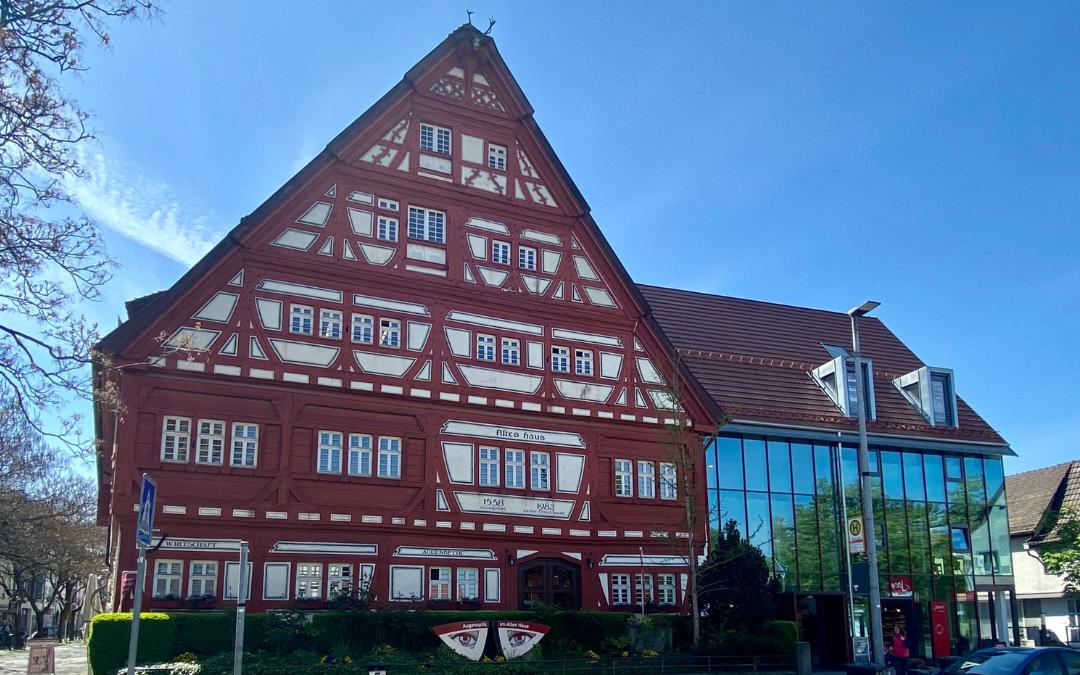
The Old house was built in 1538 as the "Herberge vor dem Oberen Tor" inn. In 1978, Neckarwerke bought the building to demolish it and build a new administration building in its place. After the Monuments Office prevented this, the architect Dr. Schweitzer acquired it and renovated it. Today, the magnificent Renaissance façade is one of Kirchheim's gems.
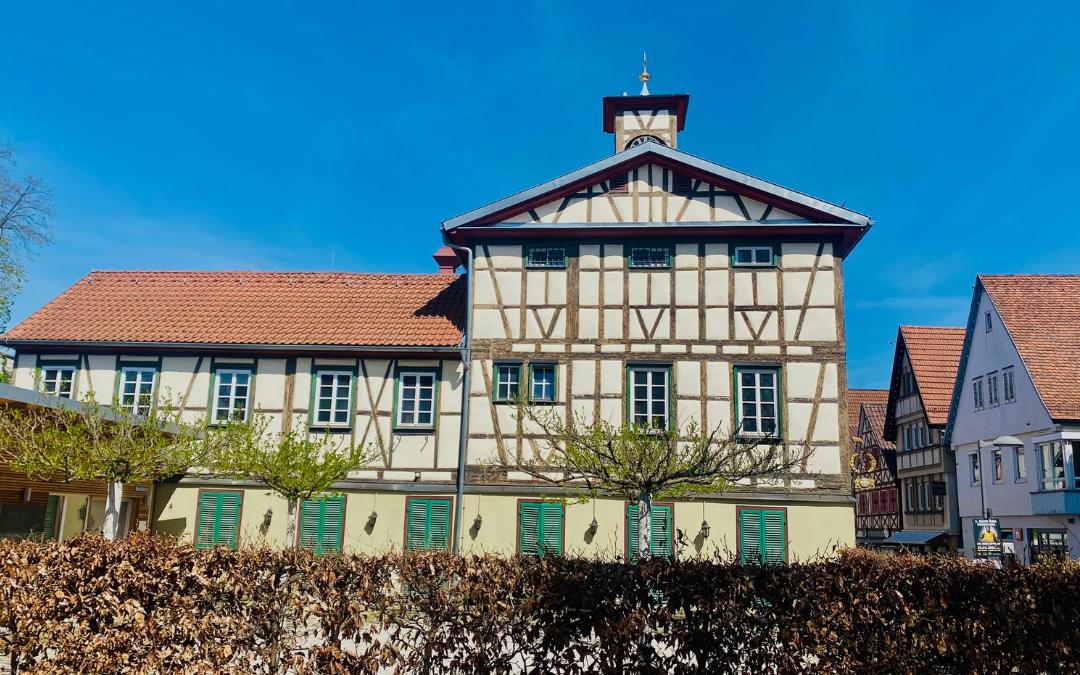
On the other side of Alleenstraße, slightly set back, is the Old guardhouse. It was built in 1829 for the soldiers on guard duty and also served as a prison. It was later used as a police station until 1975. Since then it has been used as a restaurant. The restaurant is currently closed because the guardhouse is being renovated.
Now I'm already in the middle of Kirchheim's pedestrian zone. The Market street is lined with beautiful half-timbered houses and many stores.
On the left hand side Market Square of the Market fountain with its fountain trough from 1726, which is adorned with eight cast-iron plates bearing the coats of arms of the town and Duke Karl Eugen von Württemberg.
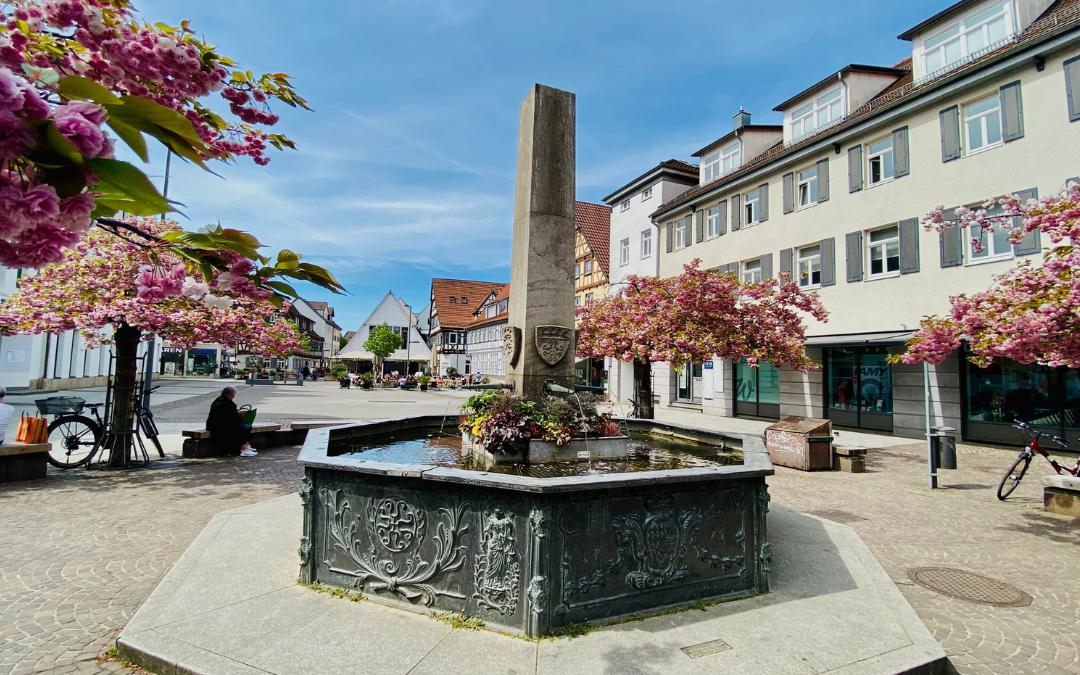
On Marktstraße, I walk straight towards the magnificent town hall. Completed in 1724 Kirchheim town hall is one of the most beautiful half-timbered town halls in Baden-Württemberg. The ornate half-timbering was plastered over 15 years after it was built and only uncovered again in the 20th century. The tower can only be climbed as part of a guided tour.
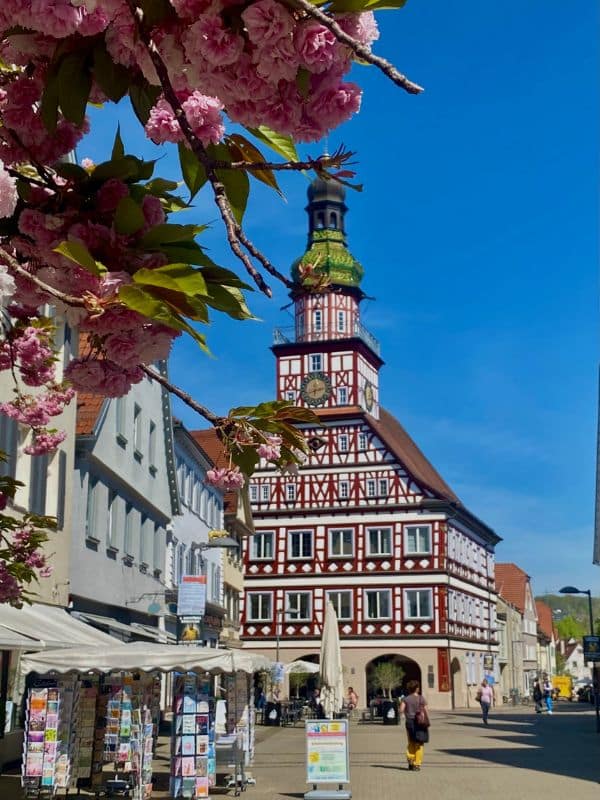
In front of the town hall, I turn right down Max-Eyth-Straße to get to the Bastion to get there. Parts of the once 3.6-kilometre-long town wall as well as the bastion in the north-east of the old town and the castle bastion are still preserved from Kirchheim's town fortifications. The vaults house the Bastion Club, which regularly hosts cultural events. The Small park near the bastion is a quiet retreat on the edge of the old town.
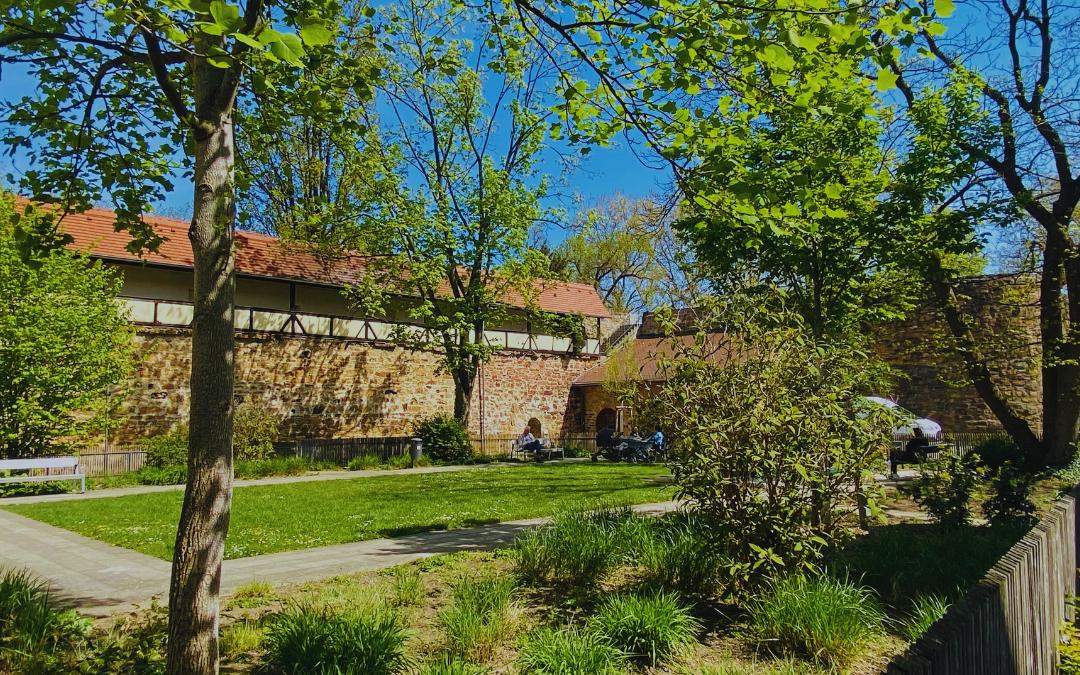
I walk back to the city center via Widerholtstraße and admire the flowers in front of the store Flowers and Gardens Gerber GbR.
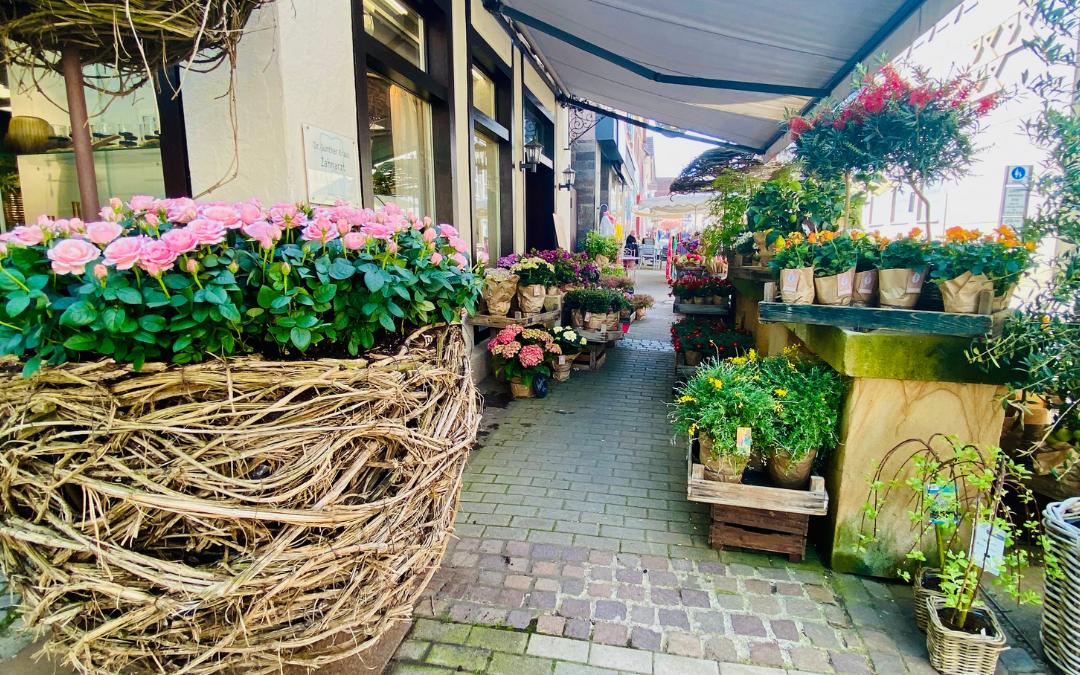
From here I can already see the St. Martin's Churchwhich is currently being renovated and is therefore closed. The church, which was converted into a three-aisled Romanesque basilica around 1220, was given its current Gothic appearance in the middle of the 15th century.
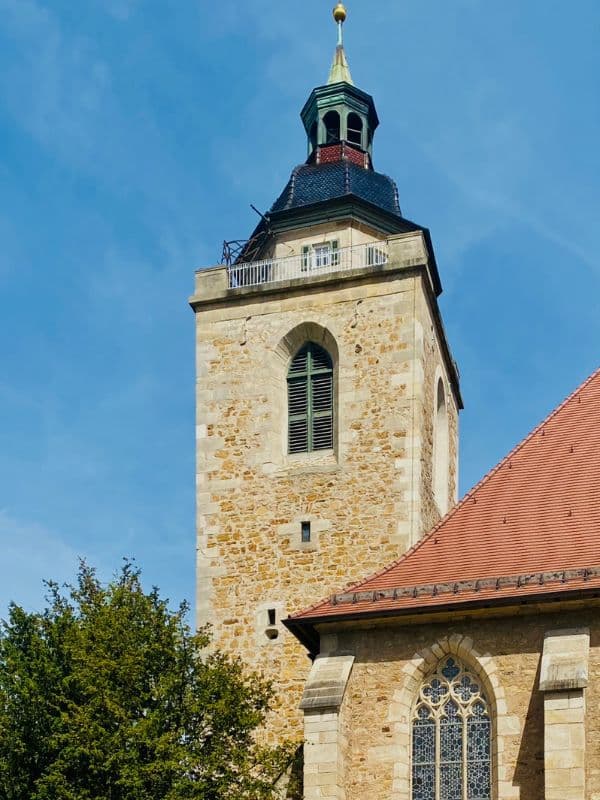
Next to the church, the magnificent deanery building, which was built after the town fire in 1692, catches the eye. To this day, it houses the administration of the Protestant church district of Kirchheim unter Teck.
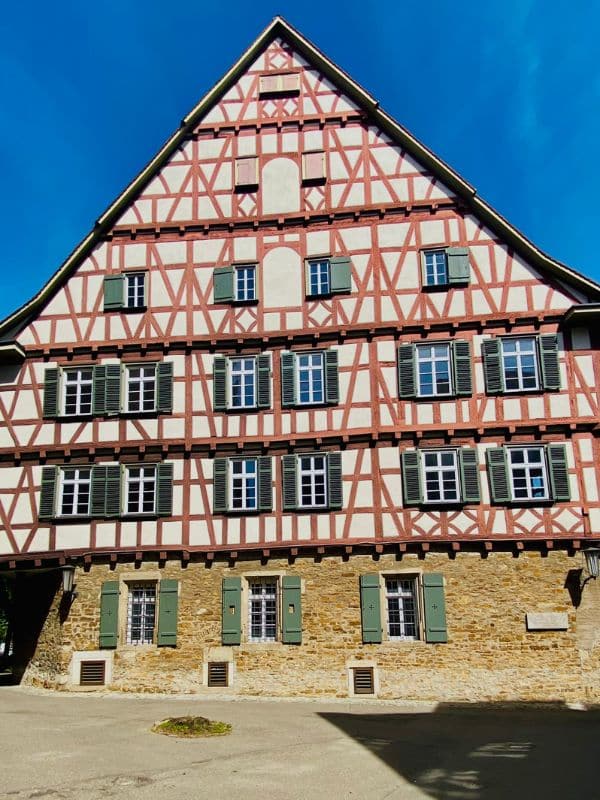
Next to the church, I walk past the memorial to the fallen and stand in front of the Max Eyth Housewhich also includes the Kirchheim Tourist Information website is located.
The birthplace of the engineer and poet Max Eyth was built in 1540 as a Latin school and is Kirchheim's oldest half-timbered house. It houses a literary museum about Max Eyth and other writers associated with the town of Kirchheim, such as Hermann Hessewho spent a few vacation days with his friends from Tübingen in Kirchheim in 1899 and whose story "Lulu" is set in Kirchheim unter Teck.
Max Eyth was born in this house on May 6, 1836. His literary work has largely been forgotten, but Max Eyth was the founder of the DLG, the German Agricultural Society, which he established in 1885 after returning from Leeds in England, where he had worked as chief engineer for steam plow manufacturer John Fowler from 1860 to 1882.
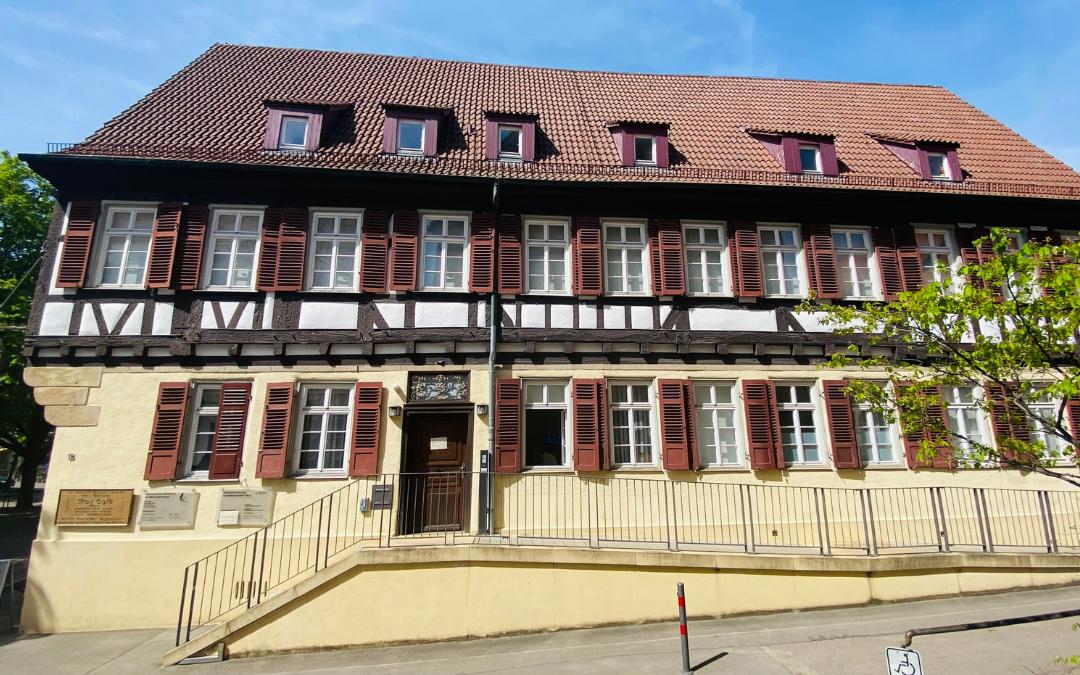
Opposite the Max-Eyth-Haus stands the 16th-century house, built almost entirely of stone. Kornhaus (granary), which survived the devastating town fire in 1690. Today it houses the Municipal Museum and the Municipal Gallery. It is currently being modernized and is therefore closed.
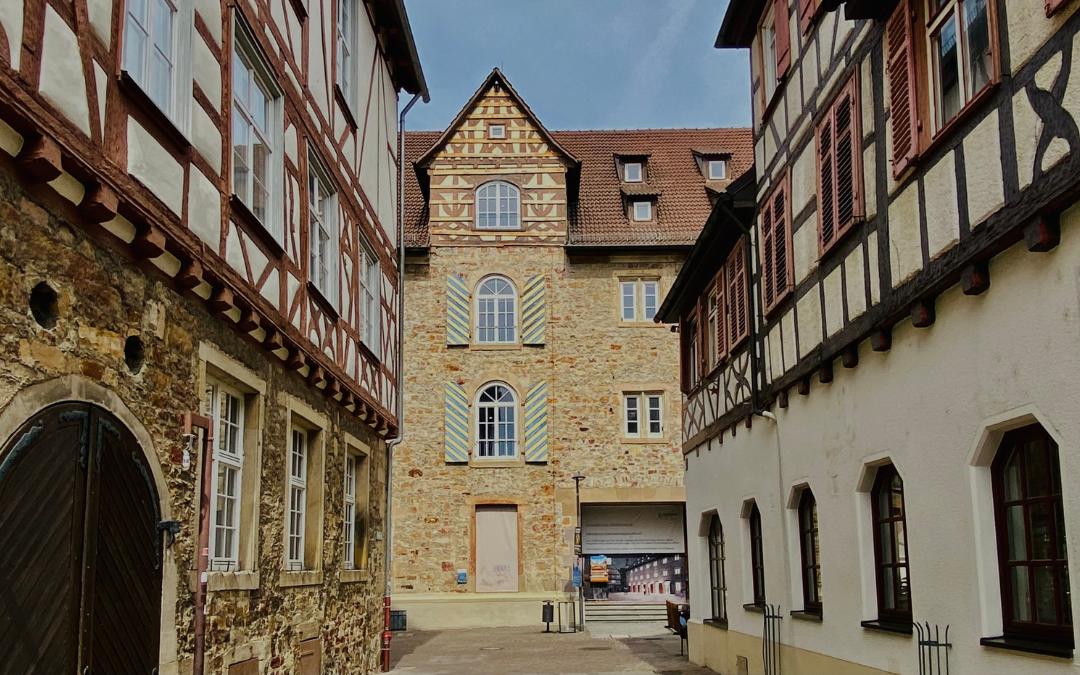
I continue along Kornstraße, which is lined with restaurants and cafés, across the lively market square to the Kirchheim Castle. Memorial steles for Franziska von Hohenheim and Duchess Henriette have been erected in front of the palace. The Renaissance palace was built between 1538 and 1560 as part of the Kirchheim state fortress and later expanded as a residential palace. Franziska von Hohenheim lived here from 1795 until her death in 1811, Duchess Henriette - the last resident of the palace - from 1817 to 1857.
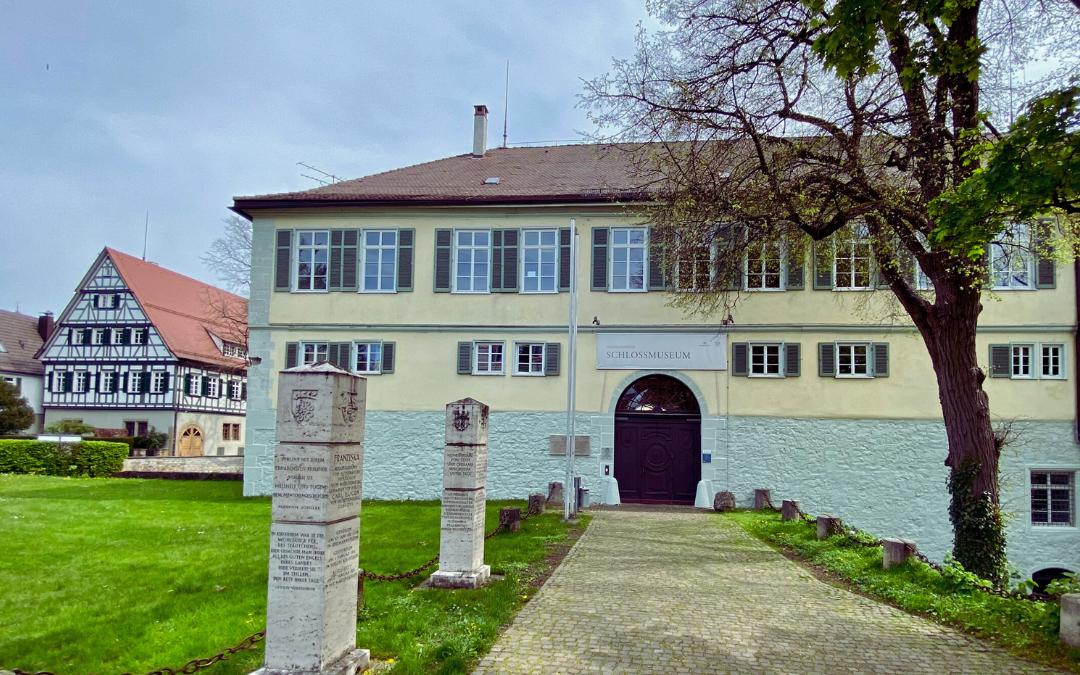
During an extensive coffee break in the Café Walters I treat myself to a delicious slice of cheesecake and a large cappuccino in the cozy Schlossplatz square. Afterwards, I take another stroll through Marktstraße and cross Alleenstraße to visit the former Dominican convent. The convent was founded in 1235 outside the old town wall by Duke Konrad I of Teck. The convent was closed during the Reformation and the convent church and convent buildings were demolished in 1539. The last monastery buildings burned down in the 17th century. Today, the Kirchheim branch of the Nürtingen tax office is located in the half-timbered house built in the 17th century to replace the burnt-down outbuildings of the monastery.
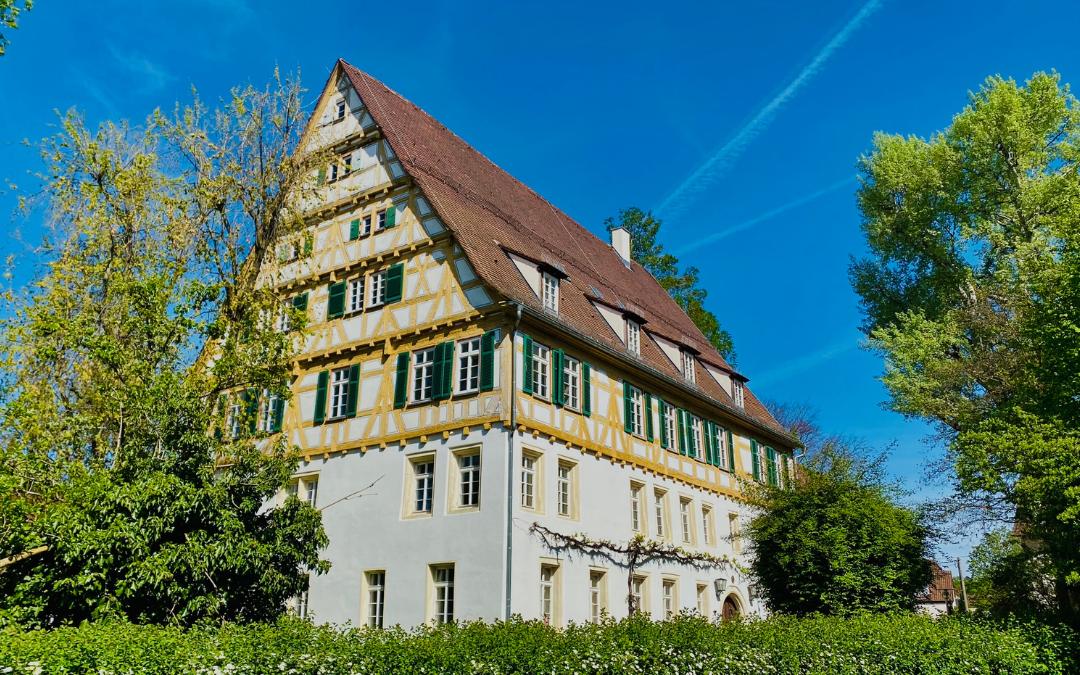
I walk back to the station. The S-Bahn via Stuttgart in the direction of Herrenberg runs every 30 minutes. I found the journey to Kirchheim super convenient and will be leaving the car behind more often in future to take the train.
12 of 12 info
If you enjoyed this glimpse into my day and have a blog yourself, join in the fun!
The photo project 12 of 12 was initiated by Caro from Draußen nur Kännchen. On the 12th of the month, you take lots of photos throughout the day, and in the evening, you pick 12 of them to write a short description about. Under Caro's 12 of 12 posting you will find a list in which you can enter your own 12 of 12 blog post.

